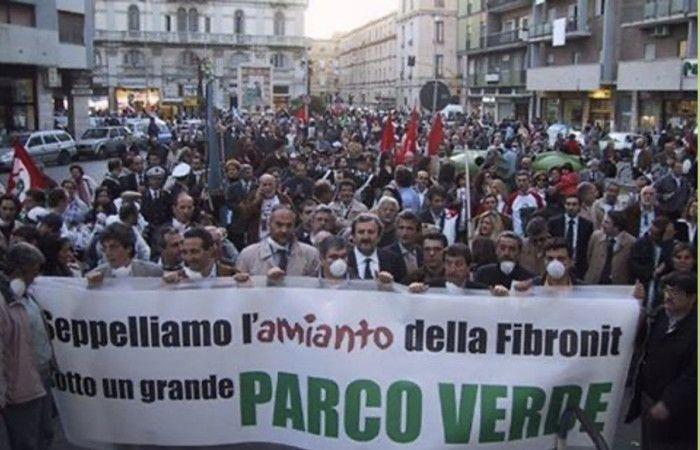The proposal for a department of ‘Active Citizenship’ could lead to the creation of a real political laboratory where citizens, associations and municipal administration together develop and put into practice strategies for the sustainable development of the city, deciding together
“A green, moving, polycentric, rights, housing and university city”. He introduced himself with this business card Vito Leccese in this electoral campaign that led him to become mayor of Bari. One of the most heartbreaking electoral campaigns of the last twenty years, but one that has proven right a proposal that fully reflects the political, social and civic choices of the new mayor.
In the months preceding the electoral round of June 8 and 9, followed by the run-off of June 23 and 24, many people from Bari have developed a disaffection towards politics and its representatives, considered incapable of listening to and putting into practice the requests coming from the base. Many people from Bari, however, have rediscovered their trust in a project that has made theinclusiveness the watchword, and therefore they felt involved in the drafting of the program, thus contributing to the electoral victory of Vito Leccese.
And the fact that the new mayor feels a strong need to keep in touch with all the people of Bari is demonstrated by the program for the first 100 days, a program that wants to immediately address problems such as safety, public greenery, urban hygiene, land consumption, and the relationship with citizens. But there is something that the new tenant of the city hall must not overlook or postpone, and that is close and active relationship with the citizens.
“It is active citizenship that becomes the protagonist of institutional life”
In a long interview given two years ago to the writer, when Leccese was still chief of staff of the office of the mayor Decaro (therefore in unsuspecting times), Leccese made an analysis of the relationship between Public Administration and citizens starting from the experience of the battle for the Fibronitwhich he defined as “an unrepeatable experience because it was a product of those times and because it was the product of the desire of the citizens of Bari to reclaim spaces that until that moment had been completely occupied by the parties”.
That “desire to be there” and to count contributed to the election of Michele Emiliano as mayor in 2004, a significant election precisely because it was the group of citizens, associations, parties, personalities of great scientific, academic, social and institutional importance who “dictated” the political and social agenda of the city and gave life to the so-called Apulian Spring.
“That was the season characterized by the desire for a “plural city”. It is active citizenship that becomes the protagonist of institutional life and strongly influences the choices of the parties. … the method, used by Emiliano, at least at the beginning, was that of involvement, of participation in the choices”, Leccese underlined on that occasion. And again: “With the 2004 administrative elections, active citizenship became a method of government. Now, almost 20 years later, the situation has obviously changed. Not because those who interpreted that movement of active citizenship or those who should have interpreted it and transformed it into tools of government have probably changed over time, but because times have changed and so have the methods of communication. Now with social media everything is faster, virtual places replace in-person meetings. Let’s say that over time the role of citizens has changed. However, it remains a fact that active citizenship remains a constant, daily method of claim by citizens.”
New ways to be active citizens?
And, in recalling that not only has popular participation become regional law, but that a state law also regulates the methods of citizen participation in major infrastructure works, Leccese, without underestimating the fact that over time “habit has taken over, enthusiasm has waned also because today with social media citizens immediately reach power, even in the form of haters”, he remained optimistic. “From my observatory, that is, from the backstage of the City Hall, I see that there are neighborhood committees and spontaneous committees that aim to request attention from the institutions.”.
Two years ago the new mayor, not yet mayor, had clear ideas: “I think that the administration can only benefit from constant dialogue with citizens and from every participation tool.”. Just as he had clear ideas about the role that the Environmental Consultation, direct consequence of that spontaneous aggregation of associations and committees united in the battle for Fibronit, which was institutionalized by the then Councilor for the Environment Maria Maugeri, a woman of great political and human depth, could still carry out: “I think that its institution was a happy intuition to counter the concerns related to environmental and urban changes. The work carried out by the Consulta has been invaluable in modifying wrong decisions along the way. Even if danger is always around the corner. That is to say that it is not excluded that the relationship between citizens and municipal administrators could change. The political class that in the past supported the theses or battles of active citizenship could be tempted to use active citizenship to justify certain choices. In this, vigilance must be high because I see that on a national level there is a change of horizon, because there is a lot of talk about the environment, about ecological transition but economic choices are still based on settings that do not take into account the environmental damage that manifests itself not in the immediate but in the long term”.
New delegations in the name of inclusion
This is what Vito Leccese, Chief of Staff of Mayor Decaro, said. And we have no way of thinking that he has changed his mind, on the contrary. His entire electoral campaign has focused on the concept of participation and attention to all components of civil society.
In the midst of the election campaign, Leccese had announced his intention to establish a council delegation for LGBTQI+ rights if elected (which he reiterated during the Bari Pride). And in a recent interview, the new mayor announced the establishment of a department for Beauty “to protect our territory and common goods”, as well as the delegation for the Suburbs, the “Mayor of the Night” and Happiness, an expression that refers to the complex of initiatives to improve and make personal services more accessible.
An active citizenship department, why not?
But at this point we make a proposal to the Mayor: why not establish a new department, truly inclusive and innovative: the‘Department of Active Citizenship? All those who participated in the preliminary drafting of that program that led to the victory of Vito Leccese and who expressed suggestions and proposals, or expressed doubts if not complaints about situations that require a correction of aim, such as the issues of urban hygiene, public greenery, parking and above all land consumption; all those who asked for more consistent attention towards the suburbs, a more concrete decentralization and greater autonomy of the municipalities; all those who asked and continue to ask for real involvement in the choices that concern the present and even more the future of Bari, would experience first-hand what it means “Bari inclusive city”. An office for Active Citizenship that would give meaning and concreteness to a context that aspires to be political laboratory. The continuous dialogue with the citizens, especially in a period of crisis of incisiveness of the parties, could and indeed must – something of which the new mayor himself declares himself convinced – relaunch the associationism, contribute to the creation of a micro-network of relationships and proposals in which the administration guarantees not a concession, but a “gift” of power (the expression is from the philosopher and educator Mario De Easter) to associations but also to small groups of citizens who are enabled to manage processes (such as green management) becoming ‘microinstitutions’ and obtaining power, sovereignty and control. In short, a new protagonism that takes the form of generative democracy from below and which, as the philosopher Foucault said, leads to authoritatively managing change.
An active citizenship department would be an excellent example of how willing and competent citizens, seriously interested in collaboration, can take care of common goods and concretely participate in the improvement of a city. This is not a new experience, already tested in cities like Bologna, through agreements between the Municipality, urban civic networks and the third sector. But that in Bari would receive the seal of a structure embedded in the municipal administration and constitute, not in words, a real political laboratory, which plans the future we want on the basis of the meeting between the real needs of the common people and the long-term vision of the destiny of Bari.






